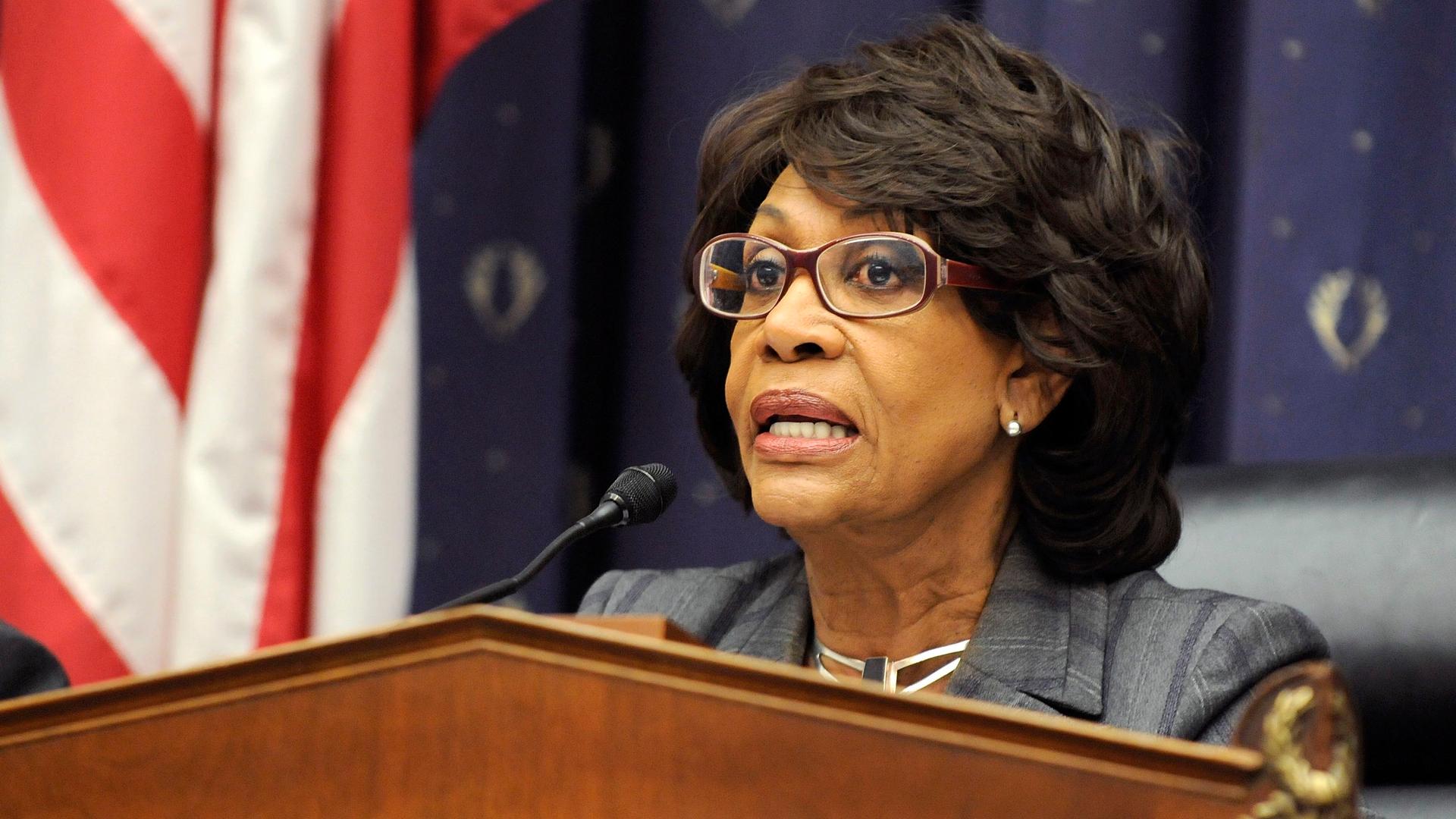#BlackWomenAtWork goes viral as women take a stand
Subcommittee Chairwoman Rep. Maxine Waters (D-CA) listens to testimony on robo-signing and foreclosures at a hearing of the Housing and Community Opportunity Subcommittee of the House Financial Service Committee, on Capitol Hill in Washington, Nov. 18, 2010.
Earlier this week during a segment on “Fox and Friends,” the program ran a clip of US Representative Maxine Waters giving a strong anti-Donald Trump speech on the House floor.
Fox News Anchor Bill O’Reilly responded by making fun of her hair.
This week, during a White House press conference, journalist April Ryan of the American Urban Radio Networks asked White House Press Secretary Sean Spicer a question about Russia. He gave a response Ryan disagreed with, and Spicer then told her not to shake her head at him.
Twitter blew up with criticism of these two incidents, and as is the cultural clapback parlance of today, a hashtag was born when educator and activist Brittany Packnett tweeted the following:
Over the next 24 hours, women from around the country shared their stories using that hashtag. Even former Secretary of State Hillary Clinton spoke about the incidents with Waters and Ryan.And Congresswoman Waters addressed it herself on MSNBC:
I personally have experienced several Maxine and April moments. So many, in fact, that it prompted me to leave the newsroom in 2014, because I was just plain tired.
In many ways, it’s been a pretty demoralizing time to be a black person in American media. Among the challenges that make racism so difficult to fix, and so odiously constant, is that white people mostly don’t even recognize when they’re saying or doing something that is racist or racially insensitive. Or worse, they do recognize when they’re being racially insensitive, but then demonstrate some semblance of regret and move on.
After leaving my staff position with an online publication in 2014, I took a pause to reflect on my career. It occurred to me that at nearly every job I have ever had — like every single one — I encountered some sort of racial incident.
Over the course of my nearly two decadeslong career, I have held editor positions at a range of startups and other online outlets, newsrooms, and media publications. At the start of each new job, where I was almost invariably the only black editor on staff (unless it was a black publication — I have worked at a few of those), I would be heralded for my “voice” (and the implicit diversity it brought), until that voice became threatening, or intimidating, or … black.
My ideas were “thoughtful” and “passionate” until I argued, say, that hiring a white freelance writer with a history of racist rhetoric is a bad idea. Or that white people can’t use the N-word, not really ever, but certainly not during a staff meeting.
I’ve been called “scary” and “intimidating” by white women co-workers who are younger and half a foot taller than me. Once my white male boss told me — did not suggest to me, but told me — that I couldn’t possibly experience racism because I’m “educated and attractive.” I’ve been called “tone deaf” for trying to negotiate a raise that would put me in equal standing with my white women coworkers at the same level of management.
In the last few days, the hashtag has shown that this is still a very real problem. Have you ever experienced workplace racism or sexism? If so, tell us your story in the comments below or call The Takeaway at 1-877-869-8253.
This story originally aired on The Takeaway.
